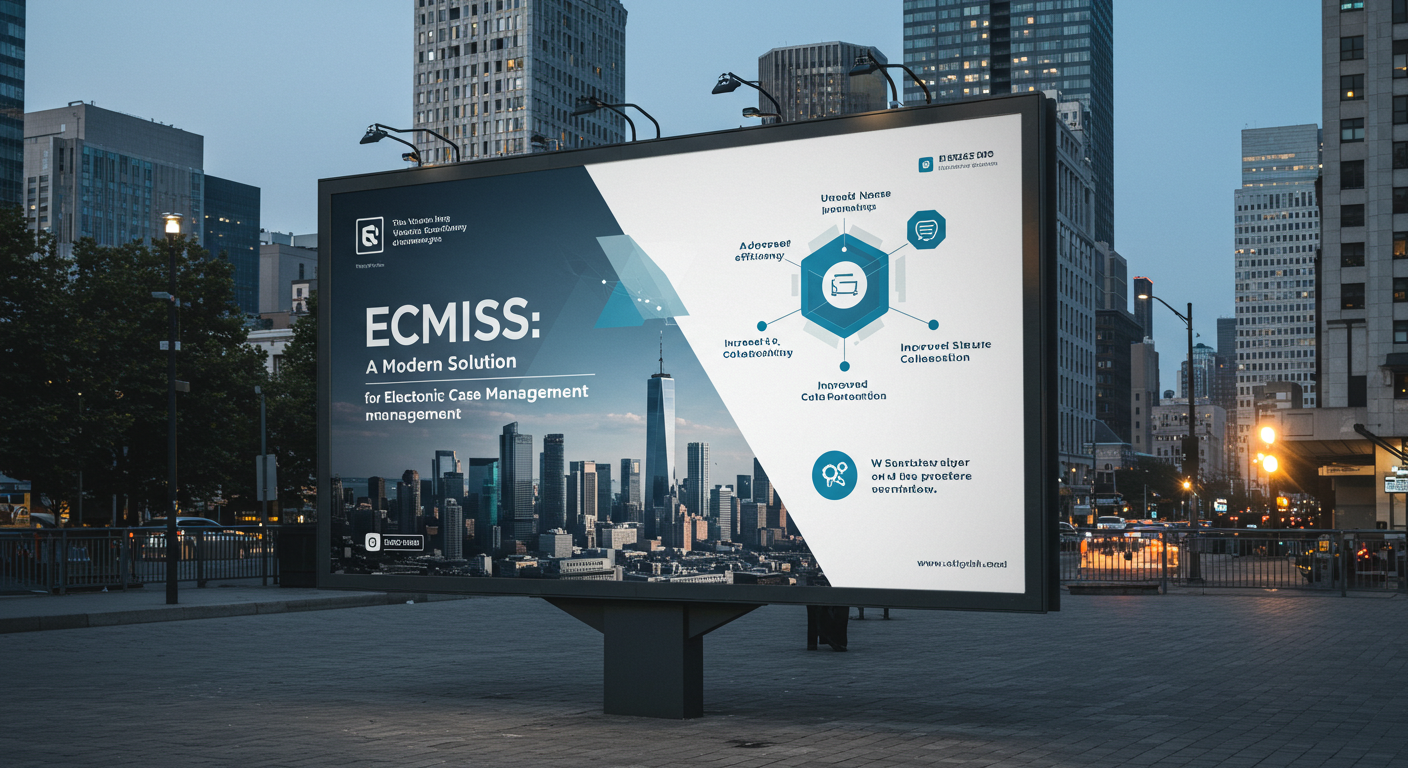In an era where efficiency, transparency, and data security are top priorities, digital tools are redefining how organizations handle case records and information systems. One such innovation is ECMISS, a powerful and adaptable Electronic Case Management and Information Sharing System. This platform is designed to enhance the management, monitoring, and coordination of cases in sectors such as social services, law enforcement, and public health.
This article provides an in-depth look into ECMISS—what it is, how it works, and why it’s transforming how agencies manage cases in today’s fast-paced, data-driven world.
What Is ECMISS?
ECMISS stands for Electronic Case Management and Information Sharing System. It’s a digital platform used by organizations to manage, document, and share case information securely. The system is especially valuable in environments where multiple departments or stakeholders need to collaborate while maintaining privacy and compliance.
ECMISS helps streamline workflows, reduce paperwork, and ensure that all parties involved in a case have access to the most up-to-date and relevant information.
Core Functions of ECMISS
ECMISS is not just a case filing system. It’s a full-scale digital solution designed to manage the entire lifecycle of a case—from intake to resolution. Here are some of its core functions:
1. Case Intake and Registration
The platform allows for fast and organized registration of new cases. Information can be entered manually or pulled from integrated databases, reducing data entry errors and saving time.
2. Document Management
All relevant files, from initial reports to legal documents, can be securely stored and easily retrieved. ECMISS often includes document scanning and e-signature functionalities.
3. Workflow Automation
Tasks such as case assignment, follow-ups, and reporting can be automated. This ensures deadlines are met and reduces the need for manual coordination.
4. Multi-Agency Collaboration
ECMISS enables information sharing across departments and agencies while maintaining data access controls. This is essential for sectors like child welfare or criminal justice, where coordination is key.
5. Real-Time Reporting
The system offers dashboards and reporting tools that help stakeholders monitor trends, workloads, and outcomes—leading to more informed decisions.
Who Uses ECMISS?
While ECMISS can be adapted for various industries, it is most commonly used in:
-
Social Services: Child protection, welfare case management, foster care monitoring.
-
Healthcare: Patient referrals, mental health tracking, and coordinated care.
-
Legal and Judicial Systems: Case scheduling, tracking, and evidence management.
-
Law Enforcement: Sharing case files between police departments and prosecutors.
-
Nonprofit Organizations: Managing outreach cases, housing assistance, and community services.
Each of these sectors benefits from ECMISS’s ability to unify case data across multiple users while maintaining high levels of confidentiality.
Key Benefits of ECMISS
The adoption of ECMISS provides a wide range of benefits for institutions and professionals.
1. Efficiency and Time Savings
Automation of repetitive tasks means more time can be spent on case resolution and client interaction.
2. Improved Data Accuracy
By reducing manual entry and centralizing information, ECMISS ensures more accurate and consistent data.
3. Enhanced Security
ECMISS platforms typically include strong encryption, user access controls, and audit trails to ensure data privacy and security.
4. Collaboration Without Compromise
The system allows for controlled sharing of information between teams or organizations, improving coordination without sacrificing privacy.
5. Better Decision-Making
With real-time data and reporting tools, decision-makers can identify trends, allocate resources effectively, and improve overall service quality.
ECMISS in Action: Real-World Use Cases
Social Work Case Management
A state agency uses ECMISS to manage child welfare cases across several departments. Social workers, supervisors, and legal teams all access the same case file, updating progress, notes, and decisions in real-time.
Coordinated Healthcare
A network of clinics uses ECMISS to monitor patients with chronic illnesses. Nurses, doctors, and specialists track care plans, share lab results, and communicate securely—leading to better patient outcomes.
Legal Case Tracking
Public defenders and court clerks use ECMISS to monitor case timelines, manage evidence files, and coordinate schedules to reduce trial delays and administrative errors.
Integration and Scalability
One of the most powerful aspects of E-CMISS is its ability to integrate with existing software systems. Whether it’s a database of client records or external tools like email, scheduling apps, or analytics platforms, ECMISS can be adapted to fit seamlessly into your digital environment.
Additionally, ECMISS is scalable—whether you’re a small nonprofit or a national government agency. The modular design allows organizations to expand features as their needs grow.
Challenges and Considerations
While ECMISS offers numerous advantages, there are a few important considerations for adoption:
Initial Setup and Training
Proper configuration and staff training are essential to ensure full use of the system’s capabilities.
Data Migration
Transferring legacy data into E-CMISS can be complex, especially if current systems are outdated or incompatible.
Cost
High-functionality platforms can involve upfront licensing or subscription costs, though long-term savings often outweigh the initial investment.
The Future of ECMISS
As digital transformation continues to reshape public services and private enterprises, ECMISS is poised to play a larger role. The system is evolving with features like:
-
AI-Driven Insights: Predictive analytics to anticipate case outcomes.
-
Mobile Accessibility: On-the-go case updates via secure apps.
-
Enhanced User Interfaces: Improved design for easier navigation and faster onboarding.
These enhancements aim to make ECMISS even more accessible, responsive, and impactful in the coming years.
Final Thoughts
ECMISS is more than just a data tool—it’s a modern infrastructure for smarter, faster, and more collaborative case management. In sectors where every decision counts, ECMISS ensures that teams are aligned, information is secure, and outcomes are improved.
Whether you’re part of a government agency, nonprofit, or health system, adopting E-CMISS could be the strategic upgrade you need to modernize your operations and elevate your impact.
